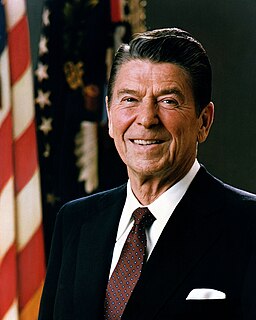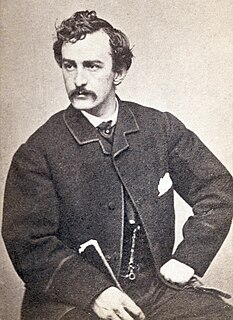
The 1956 United States presidential election was the 43rd quadrennial presidential election. It was held on Tuesday, November 6, 1956. The popular incumbent President, Republican Dwight D. Eisenhower, successfully ran for re-election. The election was a re-match of 1952, as Eisenhower's opponent in 1956 was Adlai Stevenson, a former Illinois governor whom Eisenhower had defeated four years earlier.

Samuel William Yorty was an American politician from Los Angeles, California. He served as a member of the United States House of Representatives and the California State Assembly, but he is most remembered for his turbulent three terms as the 37th Mayor of Los Angeles from 1961 to 1973. The colorful "Mayor Sam" earned numerous nicknames from both admirers and detractors, such as Travelin' Sam, Airplane Sam, Shoot-From-the-Lip Sam, the Maverick Mayor, Mad Sam Yorty, Scrappy Sam, Suitcase Sam, Saigon Sam, and the Reform Republican.

The 1982 United States Senate elections were held on November 2, 1982. They were elections for the United States Senate following Republican gains in 1980. A total of four seats changed hands between parties, and the lone independent, Senator Harry Byrd Jr., retired. Democrats made a net gain of one seat in the elections. A special election in 1983 was then held after the winner of Washington's 1982 election died at the beginning of the term.

The 2006 California gubernatorial election occurred on November 7, 2006. The primary elections took place on June 6, 2006. The incumbent Republican Governor, Arnold Schwarzenegger, won re-election for his first and only full term. His main opponent was California State Treasurer Phil Angelides, the California Democratic Party nominee. Peter Camejo was the California Green Party nominee, Janice Jordan was the Peace and Freedom Party nominee, Art Olivier was the California Libertarian Party nominee, and Edward C. Noonan was the California American Independent Party nominee.

The California gubernatorial election, 1970 was held on November 3, 1970. The incumbent, Republican Ronald Reagan, won re-election over Democrat and Speaker of the Assembly Jesse "Big Daddy" Unruh.

The 1978 California gubernatorial election occurred on November 7, 1978. The Democratic incumbent, Jerry Brown, defeated the Republican nominee, Attorney General Evelle J. Younger, in a landslide.

The 1974 California gubernatorial election took place on November 5, 1974. The primary elections occurred on June 4, 1974. Incumbent Governor and former actor Ronald Reagan was retiring after two terms. Democratic Secretary of State Jerry Brown, son of former Governor Pat Brown, defeated Republican Controller Houston I. Flournoy in the general election.

The California gubernatorial election, 1962 was held on November 6, 1962. The Democratic incumbent, Pat Brown, ran for re-election against former Vice President Richard Nixon. In his concession speech, Nixon accused the media of favoring his opponent Brown, stating that it was his "last press conference" and "You won't have Dick Nixon to kick around any more." Six years later, Nixon was elected President of the United States.
Presidential primaries have been held in the United States since 1912 to nominate the Republican presidential candidate.
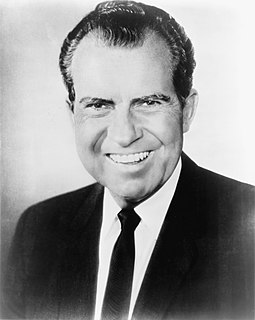
The 1968 Republican presidential primaries were the selection process by which voters of the Republican Party chose its nominee for President of the United States in the 1968 U.S. presidential election. Former Vice President Richard Nixon was selected as the nominee through a series of primary elections and caucuses culminating in the 1968 Republican National Convention held from August 5 to August 8, 1968, in Miami Beach, Florida.
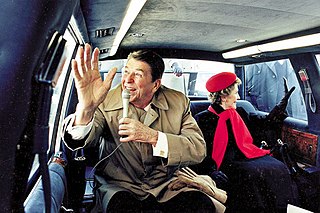
This is the electoral history of Ronald Reagan. Reagan, a Republican, served as the 40th President of the United States (1981–89) and earlier as the 33rd Governor of California (1967–75).

The 1980 United States elections was held on November 4. These included the 49th presidential election, Senate elections, and House of Representatives elections. Other elections were held as well.

The 1984 United States presidential election in California refers to how California participated in the 1984 United States presidential election. California voted for the Republican incumbent and former California Governor, Ronald Reagan, in a landslide over the Democratic challenger, former Minnesota Senator and Vice President Walter Mondale. Reagan easily won his home state with a comfortable 16.24% margin and carried all but five counties. Despite this, California's margin was 1.30% more Democratic than the nation as a whole, a sign of the state's future trend toward the Democratic Party.

The 1968 presidential campaign of Richard Nixon, the 36th Vice President of the United States, began when Nixon, the Republican nominee of 1960, formally announced his candidacy following a year's preparation and five years' political reorganization following defeats in the 1960 presidential election, and the 1962 California gubernatorial election.

Ronald Reagan was the Governor of California for two terms, the first beginning in 1967 and the second in 1971. He left office in 1975, declining to run for a third term. Robert Finch, Edwin Reinecke, and John L. Harmer served as lieutenant governors over the course of his governorship.
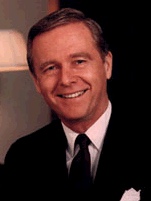
The 1982 United States Senate election in California took place on November 2, 1982. Incumbent Republican U.S. Senator S. I. Hayakawa decided to retire after one term. Republican Pete Wilson won the open seat.
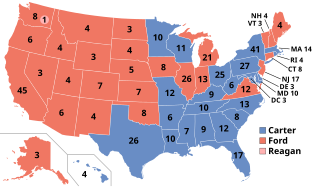
The 1976 United States elections was held on November 2, and elected the members of the 95th United States Congress. The Democratic Party won the presidential election and retained control of Congress.
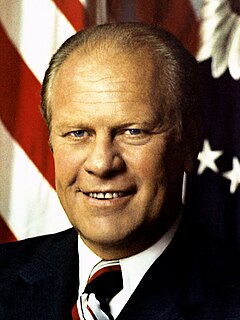
The 1976 United States presidential election in Nevada took place on November 2, 1976, as part of the 1976 United States presidential election. Voters chose three representatives, or electors, to the Electoral College, who voted for president and vice president.










